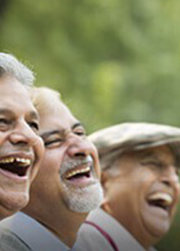
Elderly Fall and Precautions to be taken.
23 Mar 2021Elderly Fall and Precautions to Be Taken:
Falls and any related injuries are frequent and severe problems for the elderly. Having a fall could happen to any individual. At the same time, the risk factor increases with age. Falls could lead to head injuries and hip fractures.
Falls and fractures in the elderly are usually preventable and decreasing falls is critical for maintaining physical and mental health, as well as the independence of older people. The reasons for having a fall are many, including weakness of the muscle, visual impairment, poor balance, environmental issues, and specific medical conditions.
There are ways to decrease the risk of falling amongst the elderly, including making fundamental changes within the house and exercising to improve the overall strength and balance.
Lead an Active Life:
Aging results in a reduction of muscle strength and balance. Hence, physical exercises designed to improve muscle strength could decrease the risk of a fall by enhancing posture, coordination, and balance.
Balanced Diet:
It is vital to eat a balanced diet and provide the body with the nutrient it requires to function correctly. Getting sufficient energy is crucial for strengthening and preventing falls.
Stay Hydrated:
Drinking enough water every day is critical for several reasons, including keeping joints lubricated, providing nutrients to cells, and ensuring organs function properly. Being well-hydrated also enhances the quality of sleep and cognition.
Check Your Eyesight:
As we age, our eyesight also changes and it could result in a loss of balance. Getting the eyes and glasses checked frequently would help detect any vision-related problems before they result in a loss of balance and coordination.
Consult a Doctor for Hearing Issues:
Combined sight and hearing issues could make it hard to maintain balance. Consult a doctor for any deterioration in hearing since any problem with the ears could impact the balance. The issue could be resolved quickly, like a build-up of wax or an ear infection, or it may be that the person requires a hearing aid.
Manage Your Medicines:
Specific medications could make a person feel dizzy and affect balance. Inform the doctor about any side effects after taking any medication. The doctor may have to review the dose or look at alternatives.
Take Care of Your Bone Health:
Consuming calcium-rich food, getting sufficient vitamin D from sunlight, and performing weight-bearing exercises will help keep the bones healthy and strong.
Select the Correct Shoes:
Any issues with the feet or shoes could impact the balance and increase the risk of falling. Consult the doctor for any such matters. Ensure the shoes fit well and are well-cushioned to provide comfort. Avoid slippers that do not offer a good grip. Do not walk barefoot within the house or in socks.
Healthcare professionals can have a substantial impact at the individual level by communicating with elderly people about falls, reassuring concerned individuals and families that support is available and initiating measures for healthy ageing.
A system approach is required for prevention like reducing the risk factor across the life, identifying the causes, developing strength and balance exercise programs, and ensuring greater collaborative care. Interventions at the community and individual levels will go a long way in reducing the risk of falls among the elderly.
